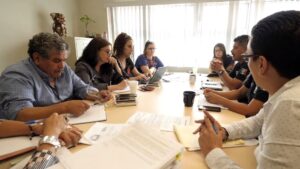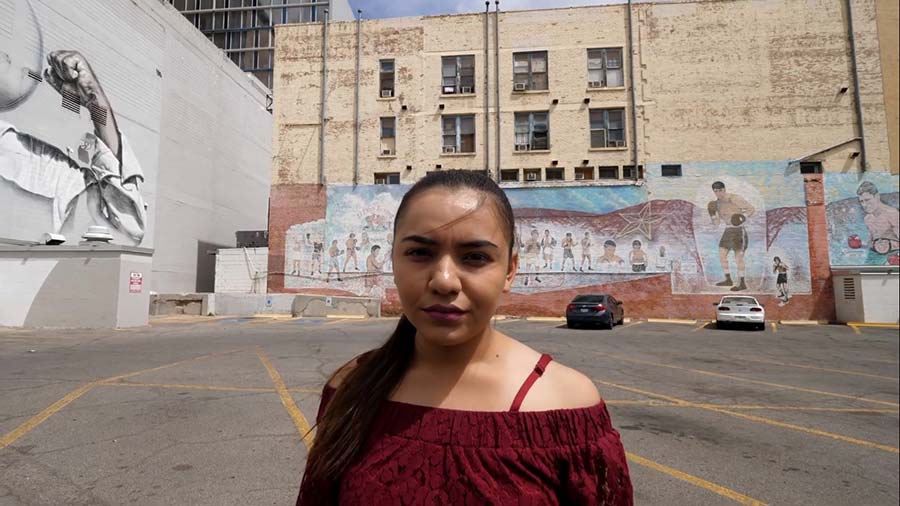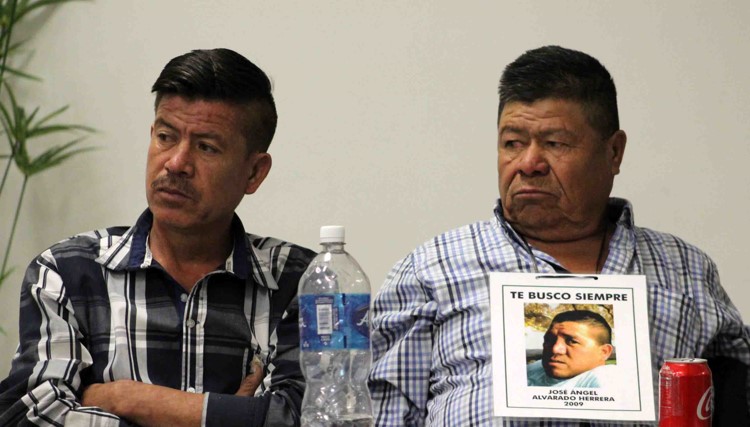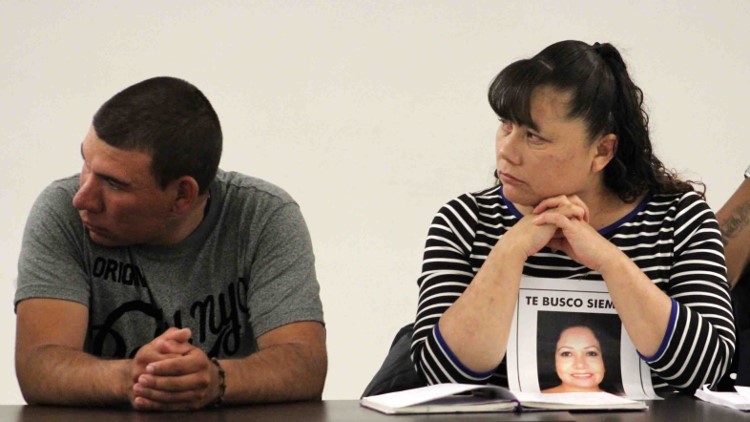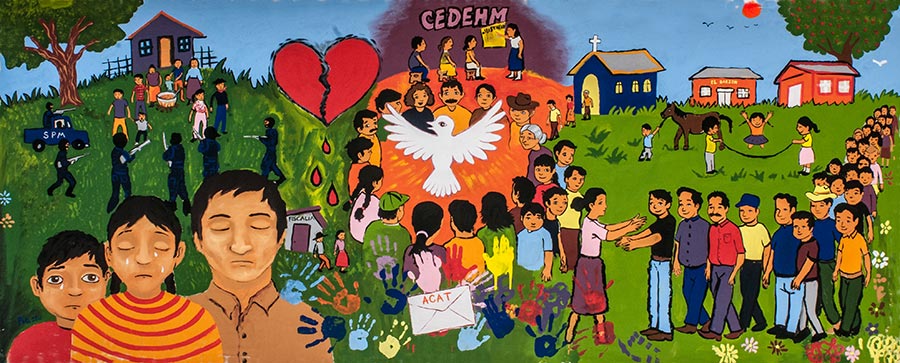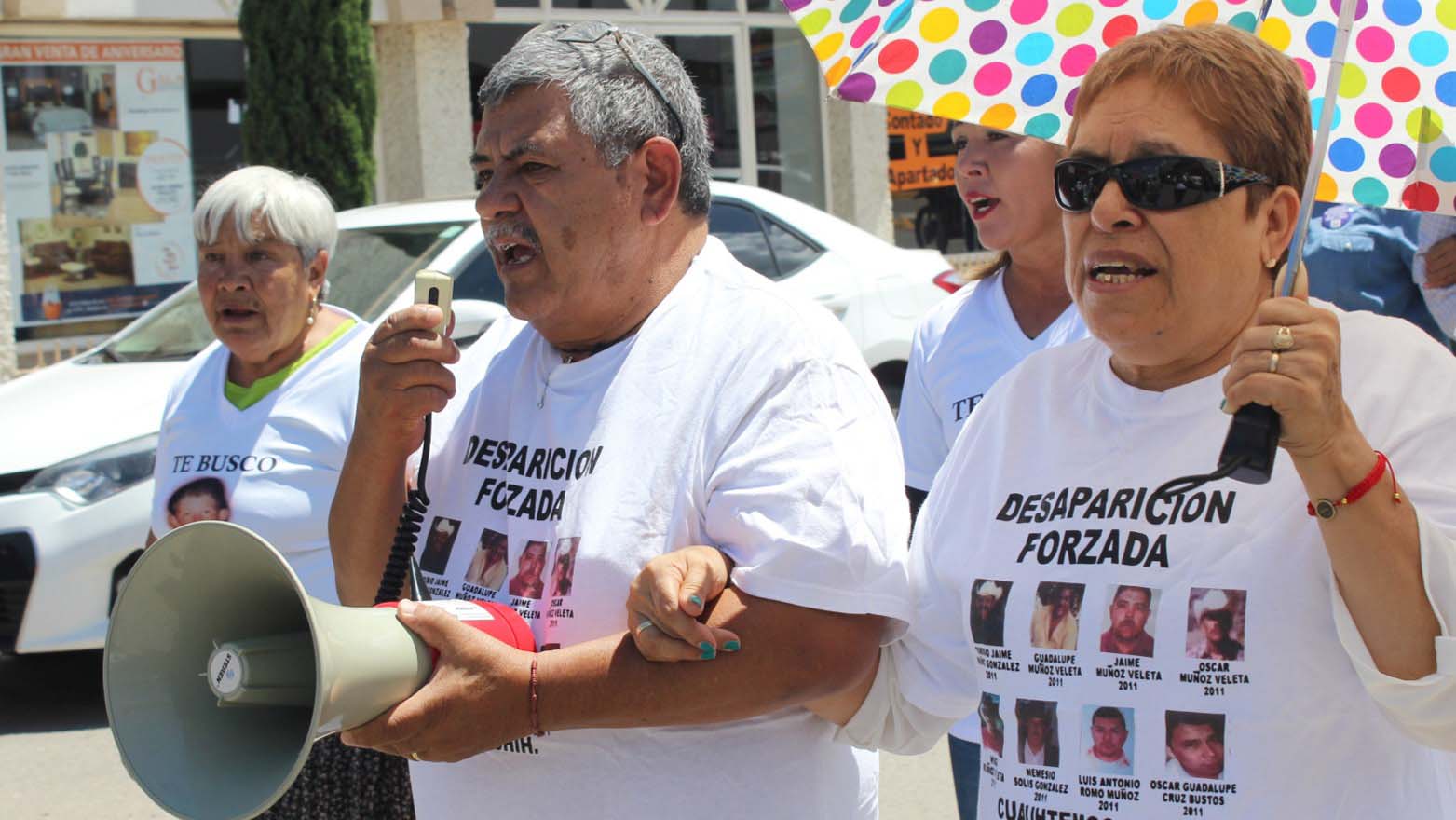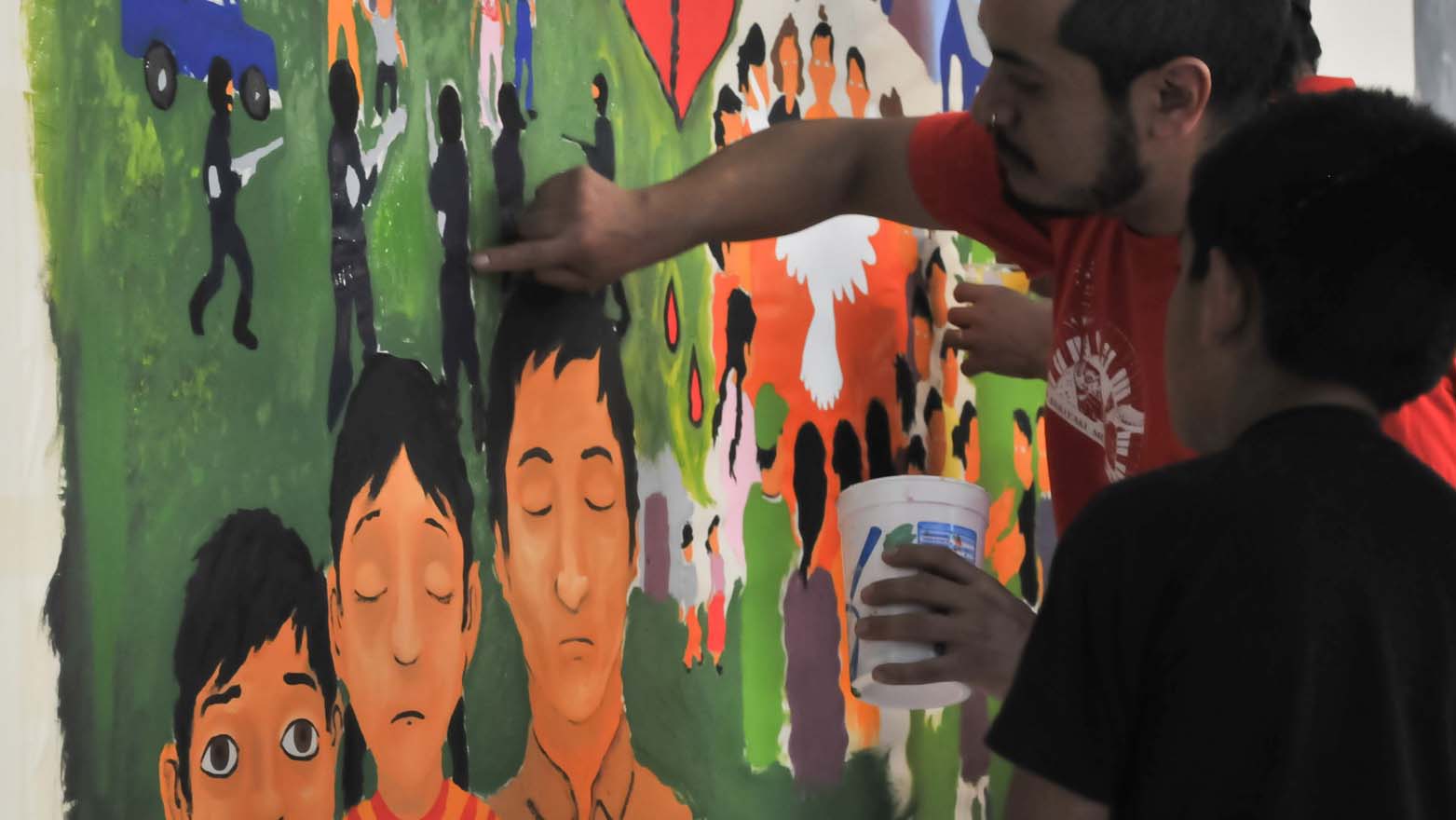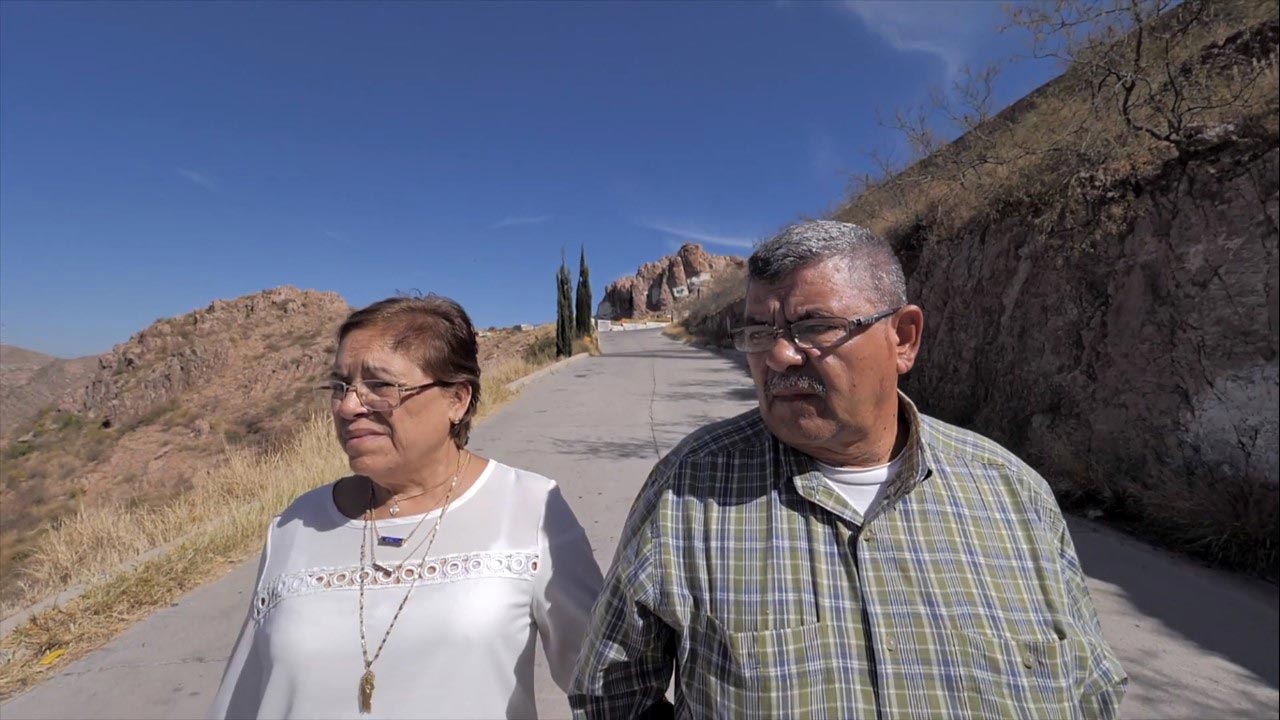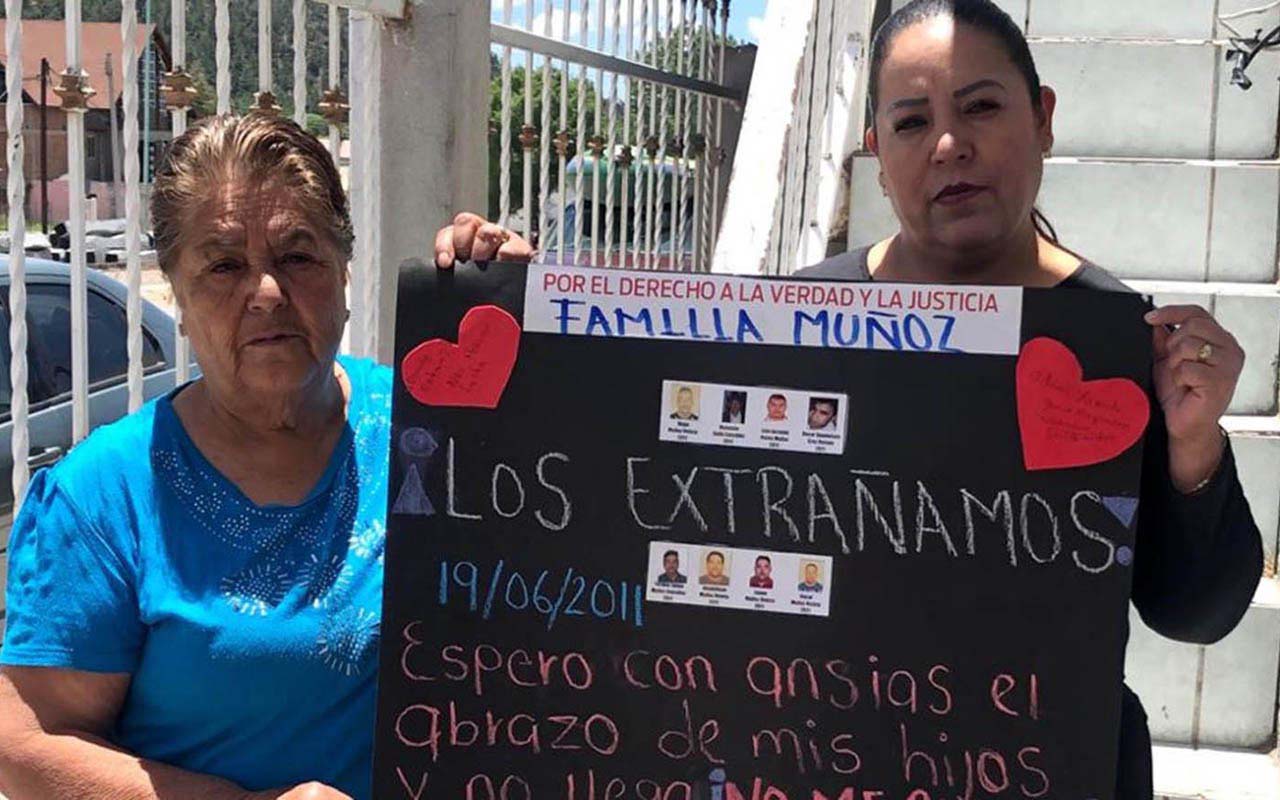Until May 2020, we have represented around 270 missing persons cases and we fully accompany a collective of more than 650 people, mostly women. These women are wives, mothers, sisters, and daughters of missing men, who remain in charge of the care and support of the family, while searching for their loved one and walking a complex path in the search for truth and justice, before countless obstacles and emotional affectations and to their health.
Forming part of the family group, approximately 150 girls, boys, and teenagers. Our experience has allowed us to recognize that girls and boys face the pain of absence with less chance of understanding the context and legal processes that follow, without participating in the decisions that are imposed to adapt the family dynamic to the new reality. In rare cases, even the truth is hidden from them, seeking to protect them from suffering, in the face of the force that something has completely upset the life of their entire family.
We also serve men in a smaller percentage, who are usually parents of missing women and men. The accompaniment is differentiated, due to the social constructions of gender roll, men manifest and express their pain in ways different from women, so we have created focused spaces in which they can share the effects the disappearance of their family member has had on their lives.
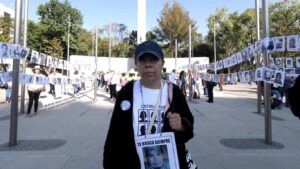
We provide legal literacy workshops so that the relatives of missing persons that we accompany are empowered to make the decisions of their legal processes, know their rights, and exercise them before the authorities.
We encourage family members to participate actively in meetings with authorities and in requesting concrete steps to encourage investigations and contribute to the clarification of the truth, in such a way as to take ownership of the legal processes as active litigants.
All of the above contributes to the effective constitutional right to the collaboration with the authorities in the integration of the investigative folder for the advancement of investigations related to the disappearances of their loved ones.
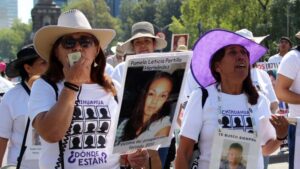
We provide group psychosocial support, as well as individual psychotherapy sessions to the relatives of missing persons, with the aim of strengthening their emotional resources so that they can cope with the legal and social processes, which they face within a context of impunity and institutional indolence.
Periodically we organize psychosocial accompaniment sessions in which we work both with a focus of gender and specialization with the relatives of missing persons in different age groups. That is why we have spaces for girls, boys, and adolescents, young and adult people.
We are a nationally pioneering organization in providing psychosocial accompaniment to girls and boys who are relatives of missing persons.
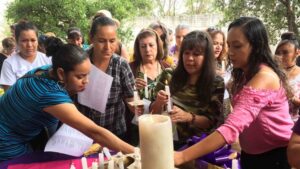
For relatives suffering from the disappearance of a loved one, the search and investigations, as well as the subsequent damage repair, become the center of their interests. In the process, they encounter great obstacles, such as: difficulties in accessing the files, disregard for the rights of the victims, legal technicalities and bureaucratic obstacles that prevent the advancement of investigations, as well as the indolence of the authorities.
Similarly, the lack of knowledge about a person’s whereabouts upsets the life and routine of families, which is also reflected in the lack of collection of pensions, access to social security, disposition of property, custody of daughters and sons, collection of housing insurance, among others.
For all of the above, in addition to legal literacy and training activities, at the CEDEHM we provide legal representation and counsel to the families of missing persons, to help ensure their access to justice. Legal accompaniment is done in the criminal, civil, and family area, both at the local and federal jurisdiction and in international law.
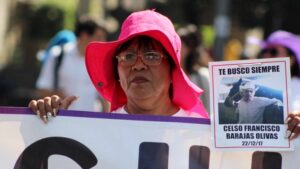
A person’s disappearance brings with it consequences that directly affect the economic situation of their relatives. This is because, in most cases, the missing person was one of the main providers of the household. Therefore, debts on that person’s behalf increase, and, given his or her condition, it is not possible to dispose of his or her assets without initiating a lengthy trial with the subsequent investment of time, money, and effort.
Thus, relatives invest their own resources in the search and engage themselves in the investigating activities, so they often find the need to leave their workplaces, or, they lack employment opportunities that allow them to combine their activities with the search for justice.
México does not have effective and timely measures in place to respond adequately to the thousands of people who go through this situation, so there are enormous challenges in this area, which allow us to respond to the economic and social consequences of the disappearance of a person, as well as to ensure the integral reparation of families.
All of the above seriously compromises the right to food, education, health, and housing of missing persons’ relatives. Given these consequences, various actions are carried out, before the relevant authorities, aimed at reducing the consequences of socio-economic deterioration.
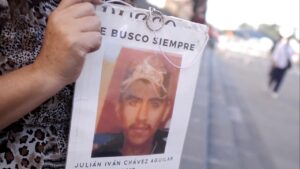
Caso Alvarado Espinoza y Otros Vs. México
Who disappeared?
José Angel Alvarado Herrera, 31years old.
Nitza Paola Alvarado Espinoza, 31 years old.
Rocío Irene Alvarado Reyes, 19 years old.
Disappearance
December 29, 2009. Forced disappearance.
Place
Ejido Benito Juárez, municipality of Buenaventura, Chihuahua, Mexico.
Perpetrators
Military elements of the Ministry of National Defense (SEDENA for its acronym in Spanish).
Background
As part of the Chihuahua Joint Operation, three Federal Police officers were found killed and tortured in October 2009. From this, in the Ejido, there was a strong deployment of elements of the Federal Police and the Mexican Army, who according to various sources, acted with abuse of authority and out of due process.
Facts
Between 20:00 and 21:00 hours, Nitza Paola was aboard her vehicle in the company of her cousin José Angel outside the latter’s mother-in-law’s house, when two vans arrived from which between 8 and 10 military elements came, uniformed and carrying weapons for the exclusive use of the army, through the use of force and excessive physical violence, and without any apprehension orders, put Nitza and José Angel in one of the vans they crewed. This was witnessed by family witnesses.
In a second event, which happened only minutes later, the same vans arrived at Rocío’s house, broke into the house, said they had an apprehension order that they did not show and took her against her will to the same van where Nitza and José Ángel were.
To this day, their whereabouts are unknown.
Actions taken
31/12/2009. Complaint at FGE (State Attorney General’s Office): AP 124/09
04/01/2010: CNDH (National Comission for Human Rights) Complaint: 2/2010/108/Q
04/01/2010: CCH operational complaint: 886/09
06/01/2010: PGR (Attorney General’s Office of the Republic) complaint: current today at: AP/PGR/SDHAVSC/M5/66/2013
06/01/2010: Amparo Claim: 009/2010
04/03/2010. IACHR MC-5510
26/05/2010: Provisional Measures of the Inter-American Court of Human Rights.
26/06/2011. IACHR Petition P-880-11 Case 12,916
9/11/2016. The case is referred by the IACHR to the Inter-American Court of Human Rights.
Observations
On two occasions, the Inter-American Court of Human Rights’s provisional measures have been extended in favor of 37 people in the family for assaults and threats received. (26/11/10 and 1/04/10).
On May 19, 2011, MC-55-10s were expanded in favor of representatives of the organizations.
Public hearings were held in theInter-American Court of Human Rights in Costa Rica on June 8, 2011 and November 21, 2014.
The criminal investigation was fragmented into up to eight instances that knew the case and from April 4, 2013, they all accumulated in the current investigation.
On June 30, 2011, the CNDH issued a recommendation 43/2011 concluding that there are sufficient elements to attribute enforced disappearance to the military.
Because of threats and attacks against the family, at various times, they had to move from their usual place of residence and currently 11 people at the nucleus of Nitza’s family are in the US seeking political asylum.
The case is known by the UN GTDF.
The IACHR decided to file the case with the Inter-American Court of Human Rights on November 9, 2016.
The Inter-American Court of Human Rights issued a ruling determining the international responsibility of the Mexican State on November 28, 2018 for enforced disappearance, violence suffered by families in their quest for truth and justice, and forced internal displacement of the family.

Muñoz Veleta Family
Who disappeared?
Toribio Jaime Muñoz González, 61 years old.
Guadalupe Muñoz Veleta, 37 years old.
Jaime Muñoz Veleta, 33 years old.
Oscar Muñoz Veleta, 33 years old.
Hugo Muñoz Veleta, 31years old.
Nemesio Solís González, 41 years old.
Luis Romo Muñoz, 21 years old.
Oscar Guadalupe Cruz Bustos, 21 years old.
Disappearance
June 19, 2011. Forced disappearance.
Place
Anáhuac, municipality of Cuauhtémoc, Chihuahua, Mexico.
Perpetrators
Municipal Police of Cuauhtémoc and Federal Police.
Background
Around 2 p.m., the family was having a get together when unknown subjects in apparent drunkenness arrived in a gray vehicle and for no reason they physically and verbally assaulted the family; one of the subjects was even armed and shot into the air. Municipal Police patrol car #414 attended the site of the events and the family applied for protection; the elements denied it on the grounds of friendship with the aggressors. Nemesio was annoyed and protested at the refusal, climbed into the patrol car and moved it a few blocks further ahead without causing damage, and took one of the radios that was in the patrol car and threw it out the window along the way. The cops became seriously upset and warned him that he would regret it for the rest of his life.
Facts
At approximately 9:30 p.m., 10-12 luxury vehicles arrived at the house where the family was located, uniformed subjects in black descended, and 6 of them with weapons typical of the armed forces, with infrared light, entered the house without a warrant of apprehension and without permission, shouting: “Federal Police, throw yourself to the ground!”. On at least 2 of them the insignia and legend of the corporation were identified on the uniforms. They threatened the family and searched the house asking for a radio; when a relative asked why they were doing that to them, one element replied: for being funny, they are going to get screwed.
The elements communicated via short-wave radios and used police-specific keys. They eventually handcuffed and took all 8 men along with a 2005 Dodge Stratus vehicle.
While the events were happening, a woman from the family managed to escape the place and telephoned the Municipal Police requesting help, however this never came despite the obvious presence of vehicles with armed subjects outside the house, instead the municipal policemen patrolled near the place looking for the woman who had given alarm asking for “a crazy girl walking around”.
Today, the eight members of the Muñoz family remain missing. Initially the investigative folder was in the State Prosecutor’s Office in the West Zone, given the complexity and complicity of municipal police officers of Cuauhtémoc, on the recommendation of investigative experts, the folder was taken to the Central Zone of the same prosecutor’s office. There it remained several years without major advances, so again and because conditions had changed, it returned to the West Zone. It is possible to individualize and identify some of the likely perpetrators of the disappearance. The public prosecutor’s office requested in a court of control of the common ground the arrest warrants. The corresponding judge, without getting to the bottom of the petition, decided, that since in the disappearance of the eight people was organized crime, it was a case of the federal forum and ordered the State Prosecutor’s Office to refer it to the Federal Attorney General’s Office. However, it did not accept it and returned it to the State Prosecutor’s Office, which argued that by court decision it was prevented from continuing to review the case. It turns out that now after more than eight years; the disappearance of eight people has not been investigated by any authority.
Actions taken
20/06/11. Complaint in FGE (State Attorney General’s Office): CI: 1157/11.
12/09/11. PGR (Attorney General’s Office of the Republic) Complaint: CI: 2938/2011.
12/09/11. Complaint in National Comission for Human Rights – CNDH /1/2011/8429/Q.
14/09/11. Information to the UN GTDFI.
03/10/11. Amparo Claim: 921/2011.
13/10/11. MC’s request to the IACHR granted on 16 April 2013.
José Rosario Hernández
Who disappeared?
José Rosario Hernández Domínguez, 45 years old.
Disappearance
October 23, 2011. Forced disappearance.
Place
Cuauhtémoc, Chihuahua, Mexico.
Perpetrators
Transit Agent (Municipal Public Security of Cuauhtémoc).
Background
On October 23, José Rosario was driving his 1995 Pontiac Grand AM in the company of Luis Javier Hernández Valenzuela and Tomás Rivera Robles. A Municipal Police patrol arrested them for violation of the rules of the police and good government. At that time, Tomás Rivera withdrew from the site of the events, but observed in the distance. The police officer met with them and gave notice to Municipal Transit Office.
Facts
At the site of the arrest came patrol numbered 050 manned by transit officer Pablo Isaac Macías Navarro, asked about the driver of the vehicle, the police officer pointed to José Rosario as the driver of the vehicle.
The police officer handcuffed and put Luis Javier in the police patrol car. The transit officer took out their handcuffs, placed them on José Rosario and put him in the transit patrol, a white Tsuru # 050. The Municipal Police then withdrew from the site of the events, while traffic checked the white Grand AM vehicle. Luis Javier, Tomás Rivera, and another witness last saw José Rosario in the patrol car.
The witness in reference walked up to the transit patrol car, talked with José Rosario and from within the patrol car José Rosario asked him to please notify his wife of the arrest. The wife arrived at the transit offices and the transit officer never arrived.
The transit office denied the arrest, and then accepted it saying that he had escaped and finally declared that some people of organized crime had detained them and taken them away.
Actions taken
25/10/2011 Complaint at FGE (State Attorney General’s Office): 6304-2167/2011.
23/05/2012 Complaint with the CNDH (National Comission for Human Rights).
Additional information
In 2016, the oral trial for enforced disappearance against the transit agent was carried out and a conviction was obtained, which was ratified in the second instance. The Amparo Trial is currently pending resolution.
The CEDEHM actively drives changes in public policy aimed at the care of families suffering from the absence of a loved one, as well as one that focuses on the procurement and administration of justice.
We have conducted various trainings to public officials of State institutions on topics such as international standards, damage repair, and victims’ rights. In the same sense, we have organized various discussion forums on local and national legislation related to missing persons.
We promoted the creation of the Special Law on Absence by Disappearance in the State of Chihuahua.
Together with other organizations and groups of families, we have come to international bodies to influence the recommendations that are issued to our country.
We currently work on the implementation in the state of Chihuahua of the General Law on Enforced Disappearance, Disappearance by Individuals and the National Search System.
In collaboration with the Argentine Forensic Anthropology Team, we are focused on strengthening Chihuahua’s expert services and creating the state search plan.
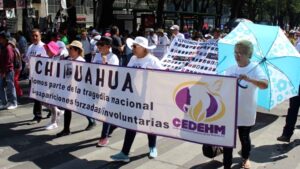
- Collaboration with the Argentine Forensics Anthropology Team
Since 2005, the Argentine Forensics Anthropology Team (EAAF for its acronym in Spanish) has been collaborating in the identification of human remains. The EAAF is a scientific institute, non-governmental and non-profit, that applies methodologists and techniques from different branches of forensic sciences for the investigation, search and recovery, determination of cause of death, identification, and restitution of missing persons.
The EAAF works with victims of enforced disappearances; gender, ethnical, political, institutional, legal, and religious violence; current disappearances, drug trafficking, human trafficking, organized crime; immigration processes, wars and armed conflicts, accidents and catastrophes. Its work is based on the principles of human rights, international humanitarian law, and, fundamentally, respect for the individual and collective right to identity, truth, and justice.
One of the guiding principles of EAAF is the deep respect for the opinions and concerns of the communities and relatives of the victims, working together with them in the stages of exhumation, determination of cause of death, and identification, providing them with all available information on each stage of work.
Following the signing of the agreement concluded in December 2016 with the Government of the State and the CEDEHM, the EAAF worked on the identification of human bone remains severely multifragmented and altered by heat. These remains were located and recovered by the Attorney General of the State of Chihuahua (FGE for its acronym in Spanish) between 2011 and 2015, in the Dolores and El Mortero ranches, as well as in the El Porvenir Gap, from the municipalities of Cuauhtémoc, Cusihuirachi, and Carichí, respectively.
Anthropologists, forensics genetists, and criminalistic experts from the EAAF analyzed 43 containers with an indefinite number of small bone fragments, selecting those that had the possibility of providing gene information. These fragments were sent to EAAF’s gene laboratory in Argentina and to a laboratory in the United States of America.
Twenty-nine individual gene profiles were obtained from the processing of these fragments, which, when compared to the gene profiles of relatives of 140 disappeared persons in Cuauhtémoc and its surrroundings, as of May 2020, resulted in the identification of 24 persons and another 5 in a multidisciplinary manner. This helps to give certainty and relief to families. However, it continues in the search for truth, justice, reparation, and a guarantee of no repeat. In addition, there are many families that still remain in the agony and uncertainty that the disappearance of a loved one brings them.
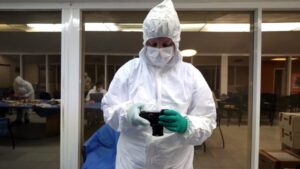
- Judicialization of cases of enforced disappearance
The general rule in our country is impunity. In the specific case of enforced disappearances, there are an extremely small number of cases that are taken to court for the persons responsible to be tried.
The CEDEHM is currently a legal representative of three cases of enforced disappearance that are in the process of initiating an oral trial that will end in a judgment.
In addition, the CEDEHM legally represented the case of the enforced disappearance of José Rosario Hernández Domínguez, one of the few convictions for enforced disappearance that exist in our country and highlighting important measures to repair the damage.
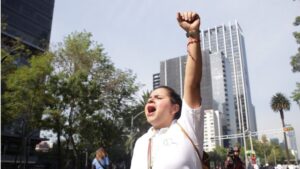
- Design, creation and strengthening of the Specialized Office in the Investigation of Human Rights Violations
In 2016 with the change of government in the State, the CEDEHM originally, and then with the adhesion of other organizations, proposed to the Governor the creation of a Human Rights Prosecutor, a proposal that was accepted.
With the support of consultants with experience in the field, a decree draft was developed which was given to the Governor, who sent it to the Congress of the State. With its approval, the Specialized Prosecutor Office in the Research of Serious Violations of Human Rights and Enforced Disappearance began, the first of its kind in the country. The objective for this Prosecutor is it incorporates methodologies and innovative approaches to advance structural changes for effective research and fairness, as well as to operate with the highest international standards.
